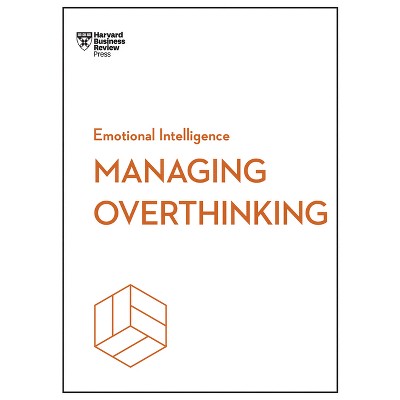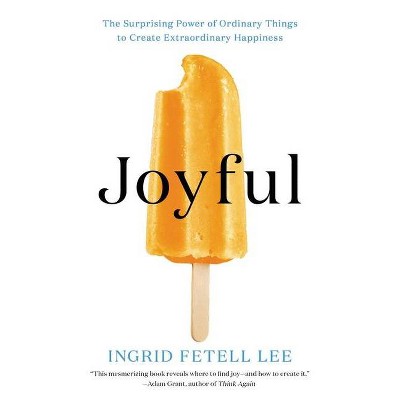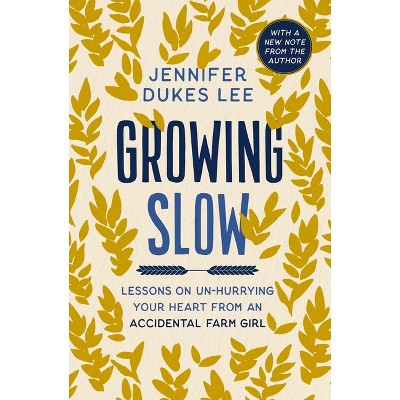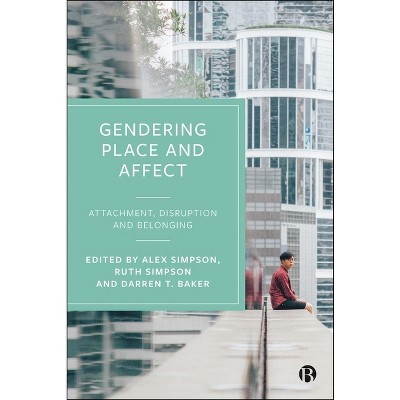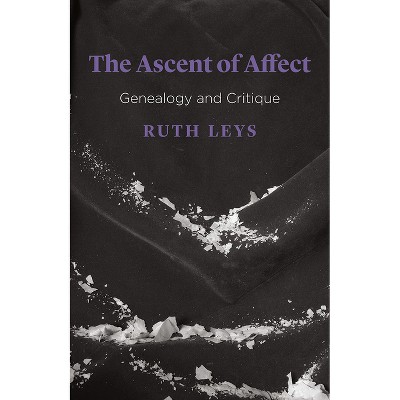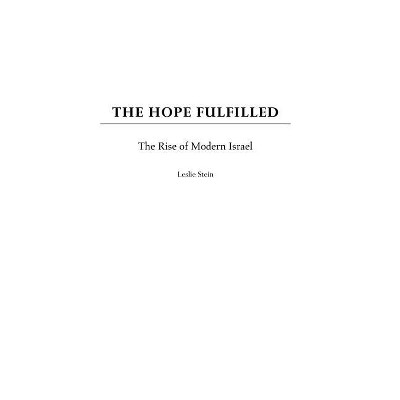Sponsored

Psychoanalytic Theories of Affect - by Ruth E K Stein & Ruth Stein (Hardcover)
In Stock
Sponsored
About this item
Highlights
- According to Ruth Stein, an updated and clinically-relevant affect theory is conspicuously absent in the field of psychoanalysis.
- About the Author: RUTH STEIN is a lecturer at Tel Aviv University and a Senior Candidate at the Israeli Psychoanalytic Institute.
- 240 Pages
- Self Improvement, Mood Disorders
Description
About the Book
According to Ruth Stein, an updated and clinically-relevant affect theory is conspicuously absent in the field of psychoanalysis. This book represents the first attempt to collate and clarify theories on affect as they relate to the clinical process. Stein outlines and analyzes the most important affect theories and empirical work presented in the last one hundred years. She exposes the rigidity of some automatically held notions about affects and draws on the newer ideas in the field to paint a large-scale picture of contemporary thought on the subject.
Stein traces and discusses Freud's affect theories, and the insights to clinical practice offered by his immediate successors. She also discusses ego psychology, the implicit affect theories of Melanie Klein and Wilfred Bion, and the thought of three contemporary contributors: Joseph Sandler, Otto Kernberg, and Andre Green. She also examines recent theories of emotion in experimental psychology. Stein concludes that certain characteristics of affect necessitate a meta-clinical (meta-psychological) theory in psychoanalysis, in contrast to some opposing claims. Uncovering some prevalent misconceptions about affect, Stein points to future directions for making affect theory relevant to clinical knowledge and practice. This work is an important resource for researchers and practitioners in psychoanalysis, personality theory, emotions and motivation, and philosophy of psychology.
Book Synopsis
According to Ruth Stein, an updated and clinically-relevant affect theory is conspicuously absent in the field of psychoanalysis. This book represents the first attempt to collate and clarify theories on affect as they relate to the clinical process. Stein outlines and analyzes the most important affect theories and empirical work presented in the last one hundred years. She exposes the rigidity of some automatically held notions about affects and draws on the newer ideas in the field to paint a large-scale picture of contemporary thought on the subject.
Stein traces and discusses Freud's affect theories, and the insights to clinical practice offered by his immediate successors. She also discusses ego psychology, the implicit affect theories of Melanie Klein and Wilfred Bion, and the thought of three contemporary contributors: Joseph Sandler, Otto Kernberg, and Andre Green. She also examines recent theories of emotion in experimental psychology. Stein concludes that certain characteristics of affect necessitate a meta-clinical (meta-psychological) theory in psychoanalysis, in contrast to some opposing claims. Uncovering some prevalent misconceptions about affect, Stein points to future directions for making affect theory relevant to clinical knowledge and practice. This work is an important resource for researchers and practitioners in psychoanalysis, personality theory, emotions and motivation, and philosophy of psychology.Review Quotes
"A major summary of psychoanalytic theories of affect (approximately: feeling), one of its most theoretically vexed areas. Rather than proposing a new theory of affect, the work devotes a chapter or part of a chapter to theorists who have contributed significantly to this topic. The prose is very straightforward, and each unit usually begins with historical background, then summarizes the author's work, and ends with a recapitulation or conclusion section. Freud provides the beginning; and it is a clear, accessible summary of his work on affect. . . . A very useful [book]."-Choice
?A major summary of psychoanalytic theories of affect (approximately: feeling), one of its most theoretically vexed areas. Rather than proposing a new theory of affect, the work devotes a chapter or part of a chapter to theorists who have contributed significantly to this topic. The prose is very straightforward, and each unit usually begins with historical background, then summarizes the author's work, and ends with a recapitulation or conclusion section. Freud provides the beginning; and it is a clear, accessible summary of his work on affect. . . . A very useful [book].?-Choice
About the Author
RUTH STEIN is a lecturer at Tel Aviv University and a Senior Candidate at the Israeli Psychoanalytic Institute. She completed her M.A. in experimental psychology and received her Ph.D. in psychoanalysis at the Hebrew University of Jerusalem. She also works as a psychotherapist in private practice and has published several articles in psychotherapy journals, including the International Journal of Psychoanalysis and Sichot/Dialogues.Shipping details
Return details
Frequently bought together
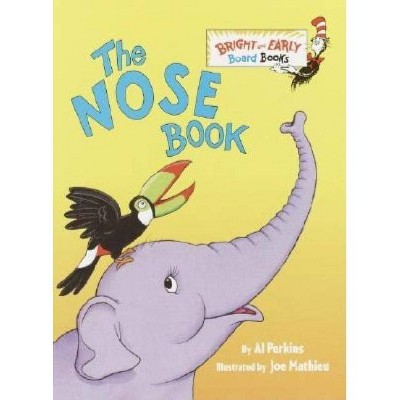
Trending Non-Fiction




